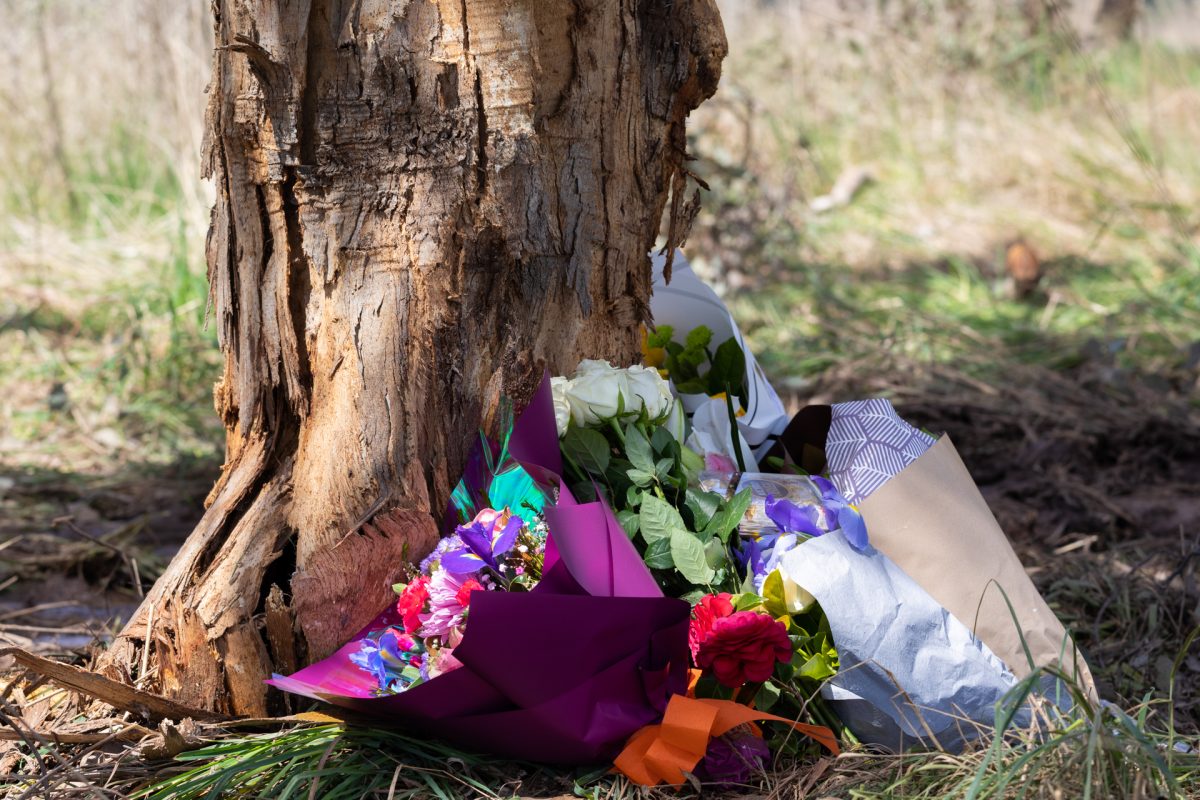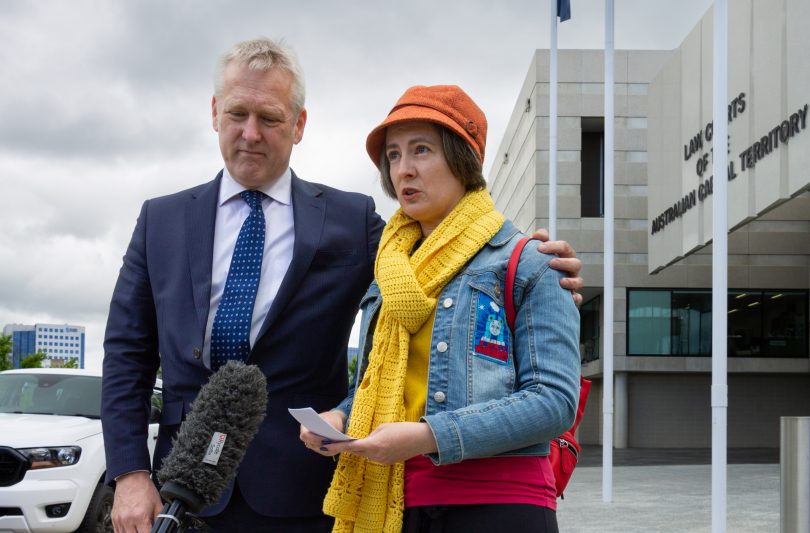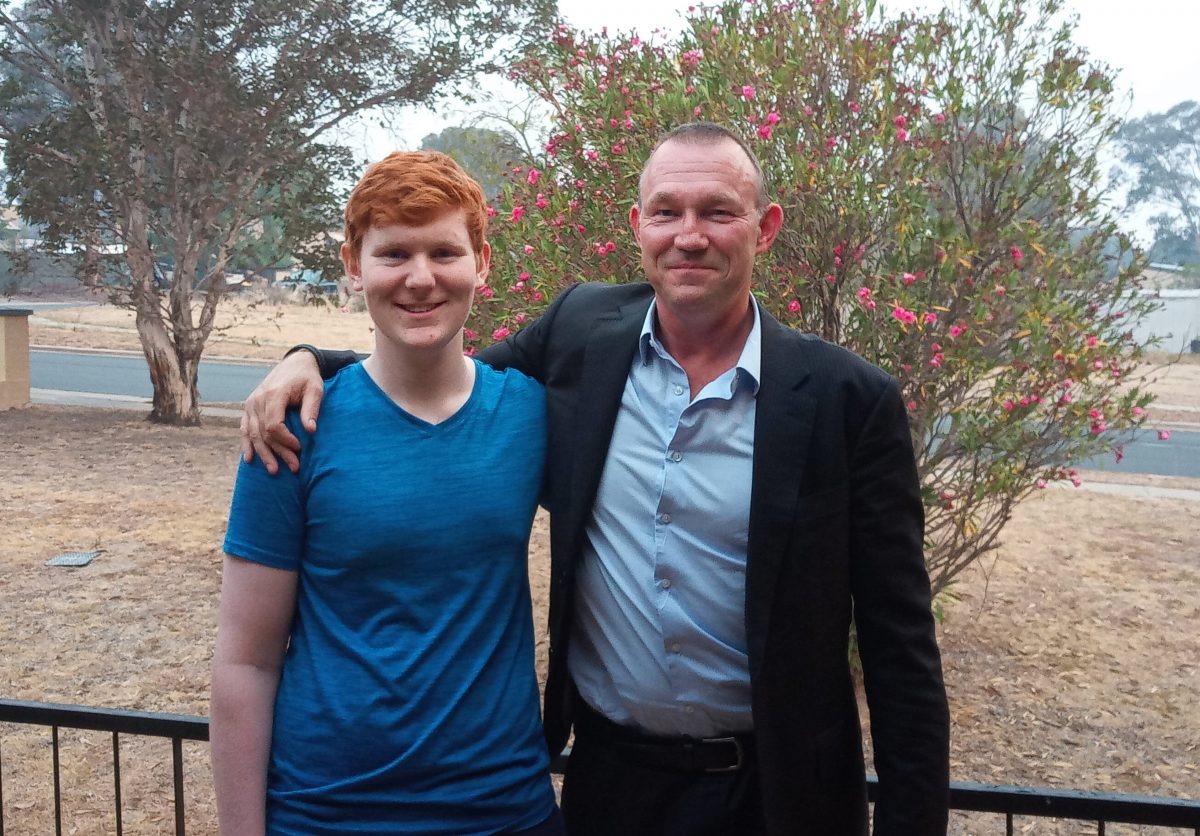
It has been a horror year on the ACT’s roads. Photo: Michelle Kroll.
The families of those left behind after horrific crashes on the Territory’s roads have called for a serious rethink of the support and response system.
Camille Jago and Andrew Corney, whose four-year-old son Blake died from head injuries in a 2018 crash, told the ongoing ACT Legislative Assembly inquiry into dangerous driving how much more support they needed.
Ms Jago said an on-scene counselling service could have been useful, especially if that same person had been able to travel to the hospital with her.
She said she would have liked to have stayed with their son for longer at the collision site.

Andrew Corney and Camille Jago said not enough support was provided as they navigated the justice system after the death of their son Blake. Photo: Albert McKnight.
Both parents said they continued to experience traumatic situations after the incident, including having to remove Blake’s car seat to take their other son to hospital.
Ms Jago said one of the hardest parts for her was when a police officer turned up at their door to serve her with a subpoena to attend court.
“There was no empathy in that process and I found that difficult to stomach because we were the parents of the child who had died,” she said.
“There was nothing that was going to stop me from being at that trial.”
Both parents received counselling through the coroner’s service and Red Nose.

Tom McLuckie – pictured with his son Matthew – strongly urged the government to commit to a review of sentencing and bail outcomes, something it continued to push back against. Photo: ACT Policing.
In recent weeks, Blake’s parents have joined forces on various occasions with Matthew McLuckie’s father, Tom.
Mr McLuckie told the same committee about the unfriendly system he had been forced to contend with following the death of his son.
He said more assistance, including practical support, should have been provided in those very early hours and days after being told of Matthew’s death.
Mr McLuckie said the family was provided with scarce initial details and he first saw more information reported on social media.
“Once the police left the house, there was no support and no reach-out … you’re left to start working through the logistics,” Mr McLuckie said.
The bereaved father described a “minefield” of application forms, including for Motor Accident Injury (MAI) insurance and his son’s funeral.
“No single part of the justice system seemed to understand the full picture of support available, the processes or support options,” he wrote in his submission to the inquiry.
Mr McLuckie said he was left to gather information about grief and trauma support alone and had to chase a referral to a counsellor through his GP. He also faced challenges with Victim Support.
As provider of the ACT Trauma Service (Trauma Support Services) until 2016, SupportLink helped those affected by sudden and unexpected death, including road trauma.
Staff would attend incidents to support community members, witnesses and bereaved family members, and provided information, and practical and emotional support.
Once the government created the Coronial Counselling Service in 2015, funding was no longer provided to TSS.
CEO of SupportLink Donna Evans said this left a “significant” hole because people no longer received practical, wrap-around support in the immediate aftermath of an event.
She said this occurred because the two services’ goals did not overlap.
Victims, including Mr McLuckie, have accused the government of placing the rights of criminals above theirs and have called for stronger sentences and more police powers to combat dangerous driving.
But lawyers and some advocates caution community expectations should not play a role in the sentencing and warn evidence shows stricter jail terms do not deter would-be dangerous drivers.
















